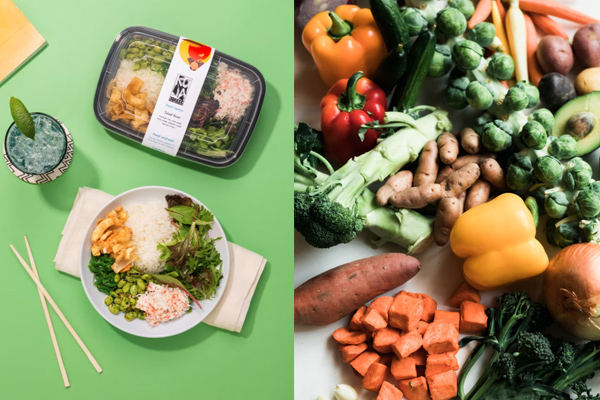
In the hustle and bustle of modern life, finding time to plan meals, shop for groceries, and cook can be challenging. Fortunately, meal kits and grocery delivery services offer convenient alternatives to traditional grocery shopping. But which option is best suited to your lifestyle and preferences? Let’s weigh the pros and cons of both:
Meal Kits:
Pros:
- Convenience: Meal kits provide pre-portioned ingredients and detailed recipes, saving you time on meal planning and grocery shopping. They’re a convenient solution for busy individuals and families.
- Variety: With meal kit services, you can explore a wide range of cuisines and recipes that you might not typically cook at home. It’s an excellent way to experiment with new flavors and cooking techniques.
- Portion Control: Since meal kits come with pre-measured ingredients, they can help with portion control, reducing food waste and promoting healthier eating habits.
- Minimal Food Waste: By receiving precisely what you need for each recipe, you can significantly reduce food waste compared to traditional grocery shopping, where unused ingredients often end up spoiling.
Cons:
- Cost: Meal kits can be more expensive than grocery shopping, especially if you’re feeding a large family or cooking multiple meals per week. The convenience comes at a premium price.
- Packaging: Some meal kit services use excessive packaging, leading to environmental concerns. While efforts are being made to improve sustainability, it’s still a factor to consider.
- Limited Flexibility: Meal kits require you to choose from a predetermined selection of recipes, which may not always align with your dietary preferences or restrictions.
Grocery Shopping:
Pros:
- Cost-Effectiveness: Grocery shopping tends to be more cost-effective than meal kits, especially if you’re buying in bulk or taking advantage of sales and discounts.
- Flexibility: When you shop for groceries, you have complete control over the ingredients you purchase, allowing you to tailor your meals to your dietary needs and preferences.
- Sustainability: While some meal kit services struggle with excess packaging, grocery shopping allows you to make more environmentally conscious choices by selecting products with minimal packaging and supporting local farmers and producers.
- Learning Experience: Grocery shopping provides an opportunity to engage with food firsthand, from selecting fresh produce to exploring new ingredients and cooking techniques.
Cons:
- Time-Consuming: Grocery shopping requires time for planning, traveling to the store, navigating aisles, and waiting in line. For busy individuals, this can be a significant drawback.
- Meal Planning Required: Without the convenience of pre-selected recipes, grocery shopping necessitates meal planning and recipe research, which may be challenging for those with busy schedules or limited culinary skills.
Choosing between meal kits and grocery shopping ultimately depends on your lifestyle, budget, and priorities. If convenience and variety are paramount, meal kits offer a hassle-free solution with minimal food waste. However, if you enjoy the flexibility of choosing your ingredients and want to save on costs, traditional grocery shopping may be the better option. Consider experimenting with both to find the balance that works best for you.

